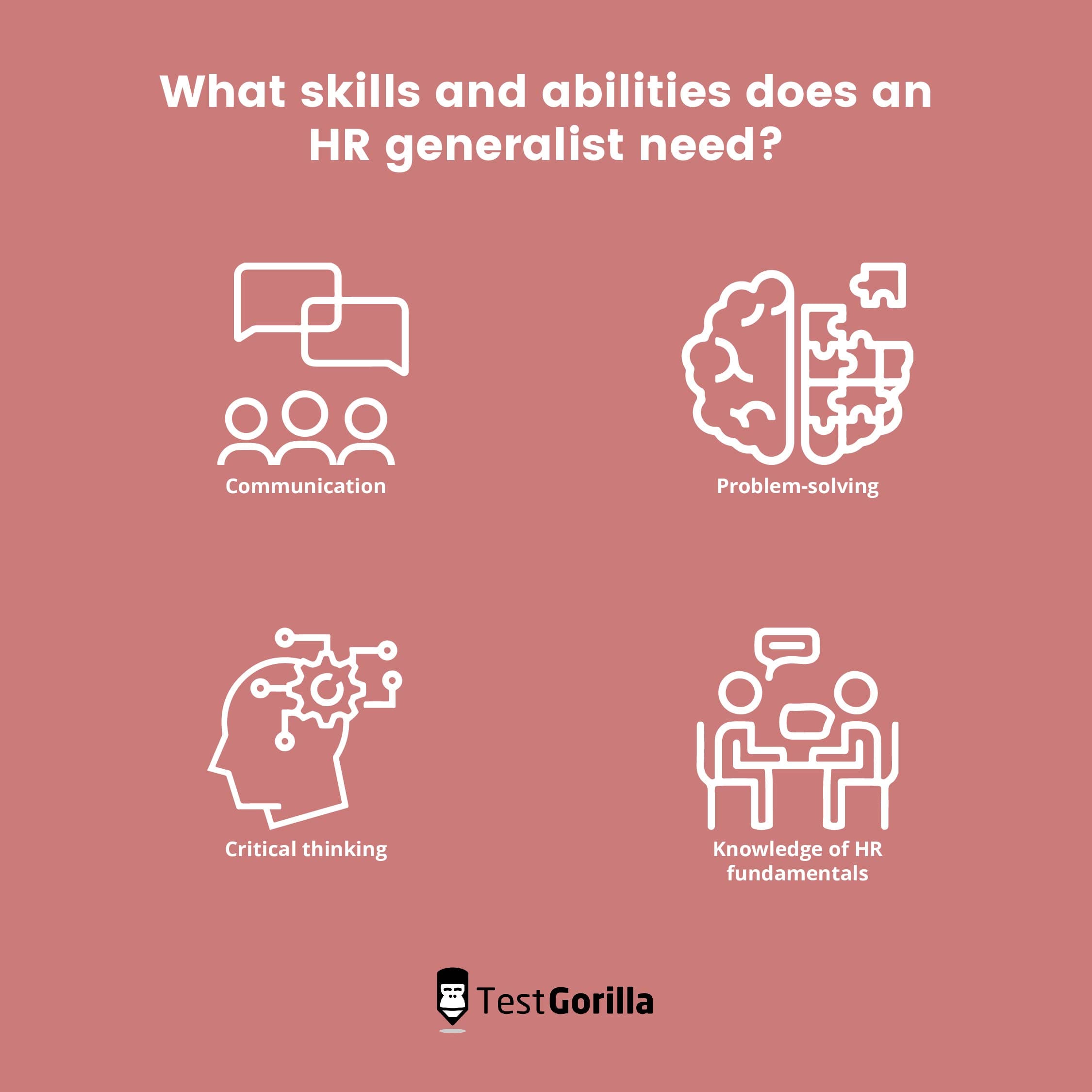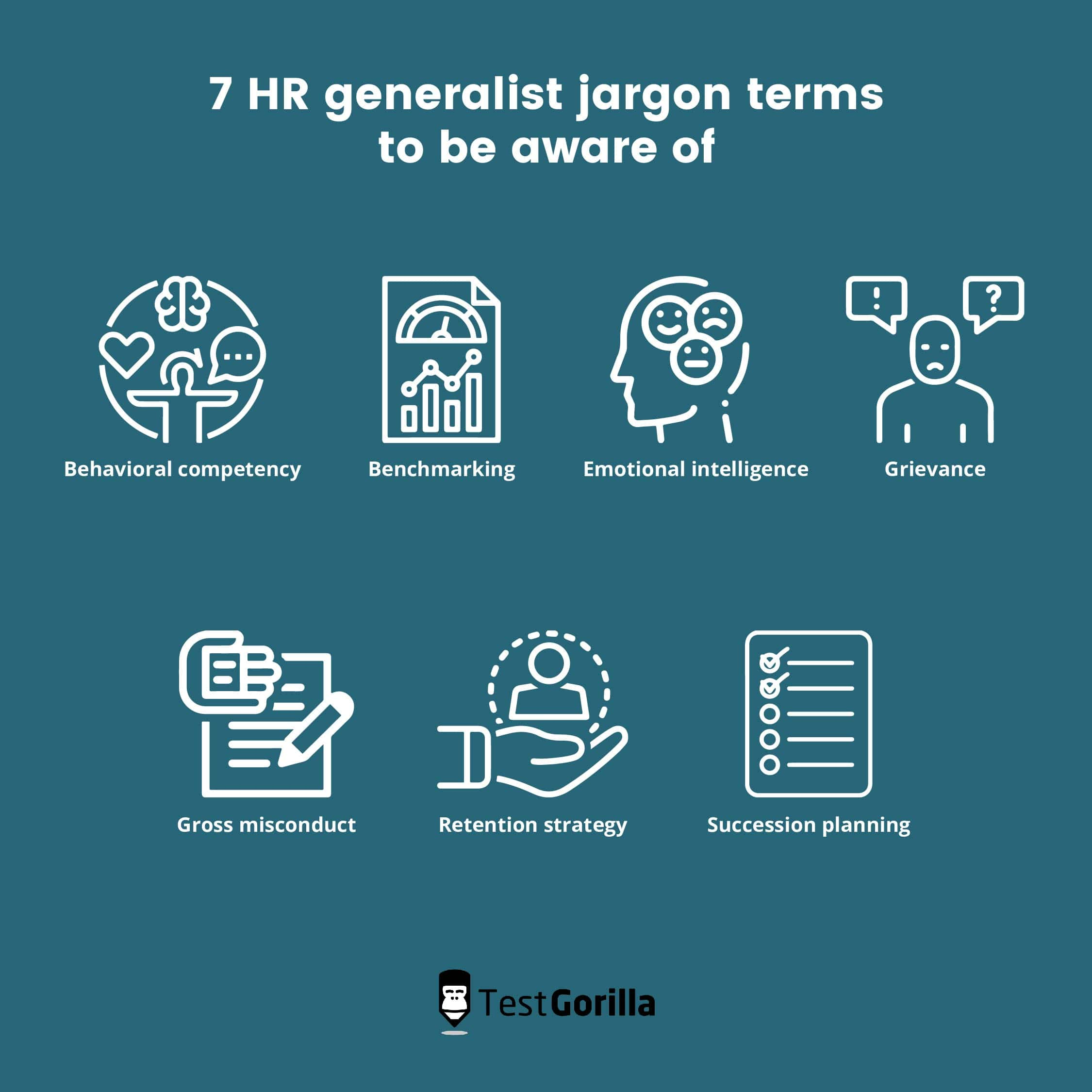Are you a recruiter looking to hire a seasoned human resources (HR) generalist?
You should be prepared to ensure your applicant can handle many responsibilities.
This article will share the key responsibilities your HR generalist will take on.
It also features an HR generalist job description, which will clarify any doubts you may have when writing one. Additionally, it describes the key soft skills your HR generalist needs for this role.
Sit tight and read until the end to learn what HR generalists are and how to hire one.
Table of contents
What is an HR generalist?
HR generalists are HR department employees who are responsible for several tasks. Not only do they handle daily operations within the HR office, but they are also responsible for HR policies and procedures.
HR generalist job description
To help you better understand what an HR generalist does, here is an HR generalist job description to help you write yours before hiring prospective candidates:
[Company name] is looking to hire a professional HR generalist to handle the operations of our HR department. Our new HR generalist will be able to understand HR policies and contribute to organizational procedures.
Key HR generalist responsibilities
The key HR generalist responsibilities you will take on for [company name] are:
Candidate sourcing and recruiting
Training course development
Administration for compensation and benefits
Mediation between the business and our employees
Our HR generalist role requirements
The qualification requirements for this role include:
Excellent active-listening skills
Two years of experience in an HR generalist role
A degree in human resources
The best insights on HR and recruitment, delivered to your inbox.
Biweekly updates. No spam. Unsubscribe any time.
How does someone become an HR generalist?
Becoming an HR generalist often, but not always, begins with studying at an undergraduate level. Many HR generalists possess a bachelor’s degree in organizational development or HR administration.
It’s also important for your HR generalists to understand the technologies they’ll use in the workplace.
Are your candidates aware of what human resources information software (HRIS) is?
Do they know what applicant tracking systems are? Have they heard of skills-testing platforms? Being familiar with these three types of technology can help your candidates become successful HR generalists.
Finally, developing the right skills is essential. In the next section, we’ll share the required skills for this role.
What skills and abilities does an HR generalist need?
The four main skills you should consider when hiring an HR generalist are excellent communication skills, good problem-solving skills, critical-thinking skills, and knowledge of HR fundamentals. Here’s more on each of these skills.
1. Excellent communication skills
Are your applicants great active listeners? Can they read non-verbal communication signals?
These skills are vital for HR generalists and can help your applicants be effective mediators between management and employees.
2. Good problem-solving skills
Since your candidates may encounter various problems as HR generalists, such as difficulties in fostering productive relationships, they need the right problem-solving skills to resolve them. Problem solving can help your new hire successfully resolve challenges within a business.
3. Critical-thinking skills
HR generalists should have critical-thinking skills. Establishing strategies for training or onboarding requires your new hire to think of creative solutions that align with the policies of the business.
Do your applicants have the right critical-thinking skills to solve such issues for employees and management?
4. Knowledge of HR fundamentals
Technical skills and business acumen are essential parts of an HR generalist role. How familiar are your applicants with these fundamental HR skills?
Recommended reading: How to assess HR generalist skills
HR generalist education and experience
To understand the role of an HR generalist, it’s important to know what education and experience are needed for the job.
As mentioned, your HR generalists may complete an undergraduate degree in organizational development or HR administration, but there are other valid forms of study. For example, your candidates may have taken a labor law course on top of their HR administration degree.
It may also be the case that candidates haven’t studied for a degree.
In this situation, you may seek applicants who have at least two years of experience in the field, though this requirement may vary depending on the business.
7 HR generalist jargon terms to be aware of
To hire a seasoned HR generalist, you should try to learn many of the common terms that apply to an HR generalist role. Here are seven terms to be aware of:
Behavioral competency: an employee’s behavioral and characteristic traits, including their people skills and managerial abilities.
Benchmarking: a process that involves measuring a team’s performance using different metrics, such as return on investment or retention.
Emotional intelligence: an employee’s ability to manage their own emotions and the emotions of others. Emotional intelligence is critical for HR employees.
Grievance: a complaint made by employees related to legal violations in the workplace or dissatisfaction with work conditions.
Gross misconduct: severe offenses that can lead to immediate dismissal.
Retention strategy: a process or set of policies that increases the chances of employees staying at your organization.
Succession planning: planning that focuses on fostering talent that you can hire internally if an employee leaves the company.
HR generalist salary
You may also be wondering about the salary you should offer an HR generalist as a recruiter.
HR generalists in the US earn $56,341 per year on average. This can increase to $73,000 with experience.
HR generalist vs. HR specialist
Before we reach the end of the article, we will help you understand the role of an HR generalist more clearly by describing how it differs from that of an HR specialist.
An HR generalist typically has a wide range of skills that enable them to complete several tasks and manage the changing requirements of their organization. This means that HR generalists may multitask and take on different responsibilities each day.
For example, your next HR generalist may focus on writing job descriptions on Monday but turn their attention to onboarding on Tuesday.
An HR specialist focuses on one particular aspect of HR. For example, they may specialize in compensation administration exclusively.
HR generalist FAQs
Here are the answers to three FAQs to clarify some of the aspects of hiring an HR generalist.
1. Which role pays more: HR generalist or specialist?
Generally, HR generalists earn slightly more than HR specialists, but the salary can vary from company to company.
2. Do your applicants need a master’s degree for this career?
If your applicant wants to specialize in a certain HR area, they might choose to take a master’s degree or other specific courses, such as those related to labor laws.
3. Which knowledge and experiences are the best indicators of a seasoned HR generalist?
Candidates who have completed an internship after obtaining a bachelor’s degree in human resources have both motivation and hands-on experience. Another good sign is if they volunteer in your community to develop their skills.
HR generalist roles: key points to remember
Hiring an HR generalist isn’t easy, but you can successfully find the right candidate by studying HR jargon terms and understanding the required skills for the open role.
Determine whether your candidates understand the technologies that make their jobs easier, and look for applicants who have gained experience in an HR position. You’ll soon find a top HR generalist with the right knowledge, experience, and skills and hire a professional with ease.
With TestGorilla, you’ll find the recruitment process to be simpler, faster, and much more effective. Get started for free today and start making better hiring decisions, faster and bias-free.
You've scrolled this far
Why not try TestGorilla for free, and see what happens when you put skills first.
















